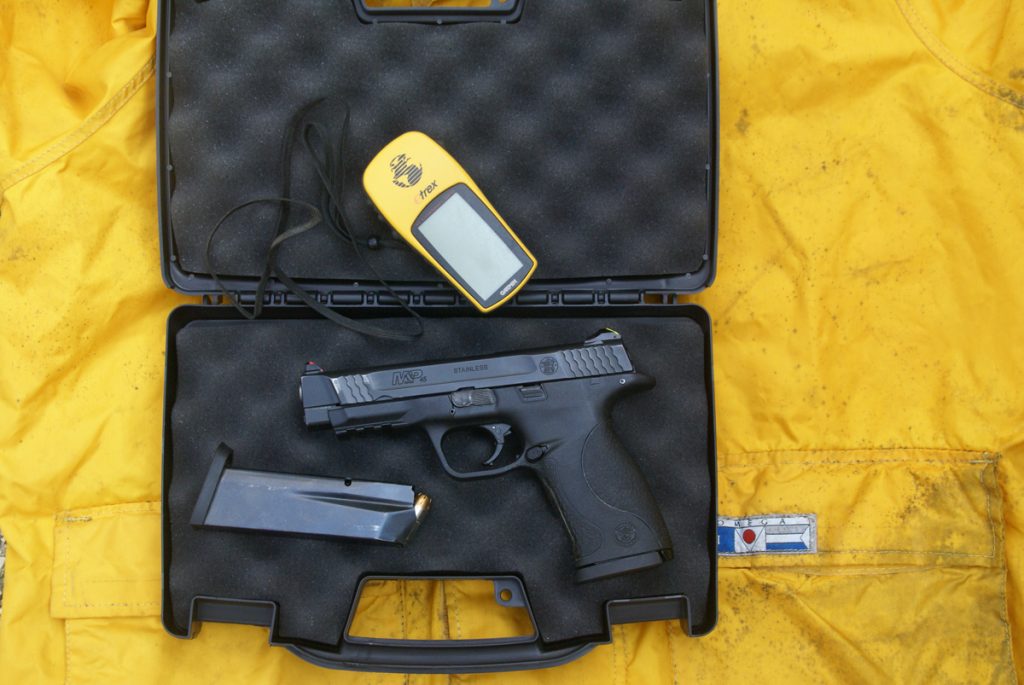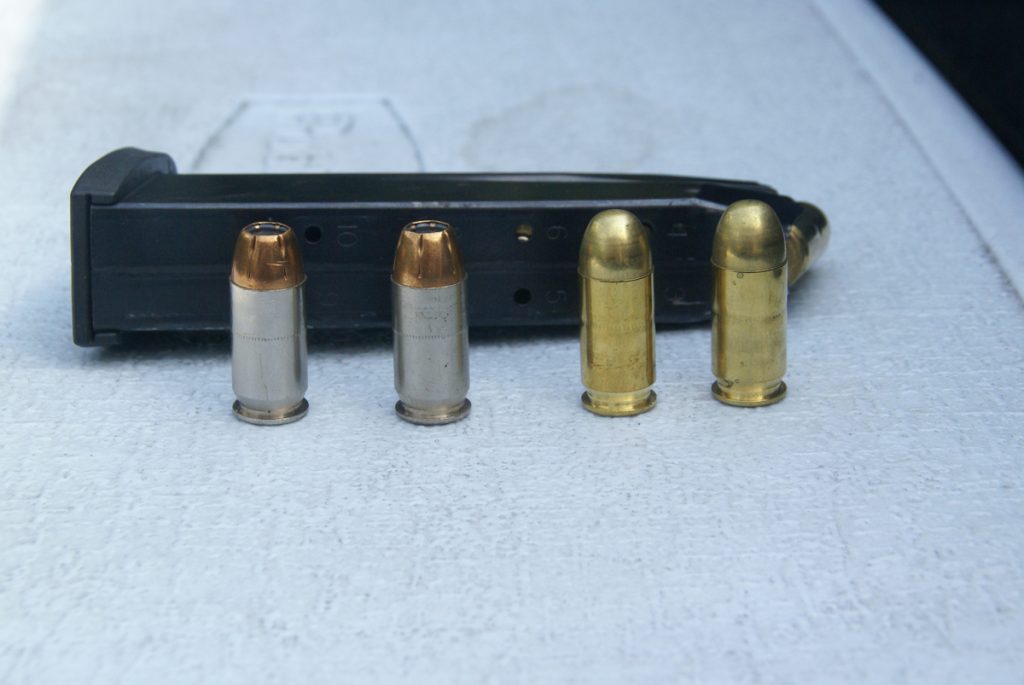June 20, 2014
By Chris Christian
If you choose to carry a firearm on your vessel, consider the options carefully.

Some boaters carry a firearm in their boat. Some don't. I make no argument for or against the practice. It's a personal decision that can only be made by the boater.
If, however, the decision is made to carry one in your boat there are a number of factors to consider. They range from the legal means of carry, to the type of firearm carried, and how it is carried.
Florida law allows any law-abiding citizen over the age of 18 (who is not otherwise prohibited by law from owning a firearm) to carry a firearm, loaded or unloaded, in their conveyance without a license. The firearm (rifle, pistol or shotgun) must be carried in a manner that it is not readily accessible for immediate use. That generally means tucked into a glove box or console (in the case of a handgun), and securely encased in a holster or gun case. The normally accepted definition of “not readily accessible” is the two action rule--two separate actions to acquire the firearm. That basically means one action to open the compartment, and another to remove the firearm from its holster or case. The term “conveyance” applies to an automobile, personal aircraft, or boat, or PWC.
If an individual is engaged in legal hunting activities from a boat, the above rule does not apply. If the boater has a valid Florida Concealed Weapon License (or one from a state where reciprocal license agreements exist) it also does not apply and you can carry a handgun concealed on your person.
 Nickel-plated cartridges (left) are far more corrosion resistant than brass ones (right) and are the author's first choice for the marine environment.
Nickel-plated cartridges (left) are far more corrosion resistant than brass ones (right) and are the author's first choice for the marine environment.
Regardless of what the law says, if a law enforcement officer or Coast Guard personnel approach your boat, you are well-advised to tell them that you do have firearms aboard and tell them where they are. You are not required to do so unless asked, but no law enforcement officer likes to be surprised by the sudden, and unexpected, appearance of a firearm.
These laws apply to Florida and U.S. federal waters. If you intend to dock in a foreign port you must contact that country's consulate in advance, and find out what their laws are. Many nations, including The Bahamas, have much stricter firearms laws than ours, and the consequences of violating them can be severe.
Whether a handgun, rifle or shotgun is carried, the finish on the gun can be important.
The lustrous deep blue finish that looks so good in a display case is a rust magnet on the water. Stainless steel is a much better bet, but it too will rust. It just takes longer. Nickel plated firearms are very rust resistant, with minimal maintenance.
An excellent boat gun is one with a Parkerized finish (readily available on many law enforcement grade shot guns and some AR-15 rifles) or Tenifer or Melonite (available on Glock, Springfield XD and S&W M&P series handguns and some AR-15 guns). These are salt bath nitrate finishes that permeate the metal and provide excellent corrosion protection. On the above three handguns, that is combined with a polymer frame that won't rust. A quick wipe down with an oily rag at the conclusion of the trip will keep these guns rust free.
Ammunition is another concern. Brass cased rounds, whether rifle or handgun, will corrode over time in a marine environment. Nickel plated cases are much more saltwater friendly. Most major ammo makers (Speer, Federal, Winchester, Remington) offer quality self-defense loads for handguns (and some do for rifles) in nickel plated cases. Those cartridges can sit loaded in a magazine for years without problems, which is not something one can say about brass cases in a marine environment.
Lastly, consider the gun case you choose for boat duty. Boats are tough on guns. Vibration, pounding, moisture and salt can all take a toll. A soft case, whether a “pistol rug” or a long gun case, protects against none of these, and is actually a moisture magnet that holds moisture against the gun.
A much better bet is a hard plastic foam lined gun case, and they're not expensive. I have a $10 Plano single pistol case with double locking latches and a padlock securing feature, that comfortably holds a full-sized .45 ACP handgun and two 10 round magazines. Fully loaded, it'll also float for 15 minutes in a filled kitchen sink. Soft cases sink like a rock.
Guns and boats can mix. You just have to put the right ingredients together.
FS

